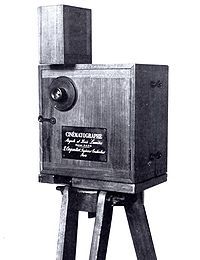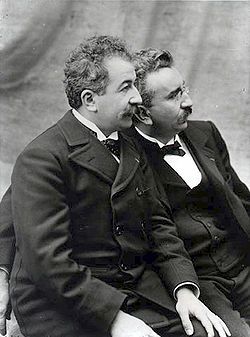I told you we would be revisiting L. Randall Wray’s third piece on Title Fraud, well he’s written a new piece for Bezinga that kind of concisely summarizes the problem-
Time to Audit the Remic Trusts
By L. Randall Wray, Benzinga Columnist
December 23, 2010 12:43 PM
We now know that the “mortgage backed” securities were not backed by mortgages. In reality they are unsecured debt. The “pooling and servicing agreements” (PSAs) that govern securitization require that the mortgage documents (including the wet ink notes as well as a clean chain of title) are transferred in a timely manner to the trustees. This was rarely and perhaps never done, because it was counter to the recommendation made by MERS (Mortgage Electronic Registry System). Instead, notes were either destroyed or held by the servicers to speed the foreclosures that were always envisioned as the end result of the mortgage origination process. Not only does this practice render the securities fraudulent but it also violates the federal tax laws that govern the REMICs-meaning back taxes are due.
But worse than all that, by breaking the chain of title and by destruction of documents, MERS and the servicers have jeopardized the entire system of property rights. Most, perhaps all, foreclosures have been fraudulent, which means that resales of the homes are also frauds. It goes without saying that the original mortgages were frauds from the very beginning-to complete the transformation to the ownership society it was necessary to ensure that by construction, default was inevitable. Either the homeowner would be unable to pay, or the servicer would “lose” the payments. By obscuring the chain of title, it would be impossible for the debtors or the courts to sort things out. Separating home owners from their property was necessary to ensure that we can create Bush’s ownership society. It is the modern form of the feudal foreclosures and seizures of peasant lands that concentrated ownership in the hands of agricultural capitalists-creating the first ownership society.
The scale of the problem is huge. Some estimate that as many as $6.4 trillion worth of home mortgages (33 million of them) are frauds, with destroyed or doctored documents. Probably all of the $1.4 trillion worth of private label residential mortgage “backed” securities violate the PSAs-so are actually unsecured debt. Three state supreme courts have already ruled that MERS cannot be the owner of mortgages, hence, has no standing in foreclosures. MERS contaminated 65 million mortgages-decoupling the mortgages from the notes and destroying the chain of title. A consortium of investors (including PIMCO, Black Rock, and Fannie and Freddie) that owns $600 billion of the private label securities are suing the banks to take them back. One investor action alone against Bank of America concerns $47 billion in fraudulent mortgages-enough to put a serious dent in its purported net worth of $230 billion (which is probably a vast overstatement resulting from cooking the books). A suit in California seeks $60-$120 billion in lost recording fees alone. All 50 states are investigating the servicers for fraud. The top five servicers (Bank of America, Wells Fargo, JPMorgan Chase, Citigroup, GMAC-Ally) have 60% of the business and include the top four banks that account for 40% of the banking business.
REMICs–
Real Estate Mortgage Investment Conduits, or “REMICs,” (sometimes also called Collateralized mortgage obligations) are a type of special purpose vehicle used for the pooling of mortgage loans and issuance of mortgage-backed securities. They were introduced in 1987 and are defined under the United States Internal Revenue Code (Tax Reform Act of 1986), and are the typical vehicle of choice for the securitization of residential mortgages in the US.
More Wray-
Anatomy of Mortgage Fraud, Part III: MERS’S Role in Facilitating the Mother of All Frauds
L. Randall Wray, Huffington Post
Posted: December 16, 2010 09:29 AM
Enter MERS — another link in the food chain — created by the banks in 1997 in preparation for the boom and bust. MERS was set up to be a foreclosure mill. It would break the centuries-old custom that protected property rights by requiring every sale of property to be publicly recorded, and requiring that any creditor claiming a right to foreclose to demonstrate clear title, with an endorsed note in the creditor’s name and a record at the county office showing transfer of the property.
The banksters did not want to go through all that paperwork, and needed to subvert the transparency that would shine light on their crimes. Hence, they set up a fraudulent shell corporation that claimed to be the mortgagee; while the original sale would be recorded at the county office, subsequent sales and purchases of the mortgage would be recorded only by an “electronic handshake” between two “members” of MERS. Even that record was considered by the banksters to be purely voluntary — MERS did not require members to actually record transactions. If they found it more convenient to conceal the transfers, that was permitted.
…
MERS deliberately undermined the legality of the loans and the records. Homeowners could no longer search the public records to find out who actually held their mortgage — the record would show MERS as owner, but MERS was a shell corporation with no real employees. It was not a servicer, so the homeowner could not make mortgage payments to the purported owner. As a result, checks were sent to the wrong servicers; servicers credited the wrong accounts; servicers claimed delinquencies on homeowners who never missed a payment, and piled late fees and delinquencies on the wrong borrowers; sheriffs were sent to break down the doors of the wrong houses, and threw belongings out on the street in front of homes on which there was no mortgage at all. MERS purposely created the mess, at the behest of banksters who do not want mere legal technicalities to get in the way of stealing homes. The undermining of the public records was not a mistake — it was MERS’s business model, created by the member banks.
And MERS helped banksters to defraud securities holders. Banks not only separated the mortgages from the notes, but they even destroyed the notes as they entered the mortgages into MERS’s electronic data base. MERS told servicers that it is “customary” practice to retain notes, not to endorse them over to REMIC trustees as required both by federal tax law and by the PSAs that govern the trusts. This made the securities a “nullity” — as the Supreme Court ruled over a hundred years ago — because a mortgage without a note is unenforceable in foreclosure. At best, the securities are unsecured debt, with no real property behind them.
In any case, the mortgages put into the trusts did not meet the representations made to investors — so even if the notes had been properly endorsed over to the trusts, the securities could be turned back to the banks. By creating a completely fraudulent electronic registry system — in which data would be entered only if banks found it convenient to do so, and in which data could be modified at any time by any member of MERS — MERS made it easy to conceal the securities frauds. Destruction or forgery of the paperwork was absolutely necessary to cover the trail of fraud from origination of the mortgage to securitization and finally to the inevitable foreclosure. Again, destruction of documents was not a mistake. It was the business model.
L. Randall Wray-

 On this day in 1895,
On this day in 1895, 
Recent Comments